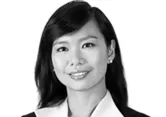Singapore's competitive advantage
By Wong Su-YenSingapore has long recognised the importance of developing its strongest natural resource: talent. Our city-state ranked highest in attracting and retaining talent in Asia in the 2017 Global Talent Competitive Index compiled by INSEAD. The report focused on talent and technology, and the findings show that countries which are mindful of how technology transforms society and organisations are able to best compete for talent.
In fact, Singapore took the number 2 spot in the ranking, just behind Switzerland. Now is not the time to be closing doors; rather cooperation between systems such as government, organisations, and education is essential to remain competitive.
Every day, news streams share updates about fractures in the world – between communities, within countries, within long established unions and between partners. Conscious of this ever-deepening split, it is important to to take the opposing viewpoint. Rather than look at the world through a lens of us versus them, we are taking an inclusive outlook: us and them.
This inclusive mind-set covers more than just the talent development ecosystem we belong to. It is important that leaders across industries adopt this ‘us and them’ mind-set in their teams and with colleagues; this can expand to looking at competitors as partners, thinking about automation or artificial intelligence (AI) as an enabler, and turning perceived threats into an opportunity to disrupt or innovate company strategy.
The next time you have a chunk of time on your commute, before dinner, or on your morning walk, think about your company’s business model and ask yourself, “How can we evolve?” How can you create synergies, rather than shutter your company against change? In an already fractured environment, it is not just about competing, but shifting the focus toward partnering.
And as we move towards this digital future, life-long learning will be the norm. It will be the individual’s responsibility to embrace a non-linear career path; to acquire digital know-how; and to cultivate future-proof foundational skills like relationship building, presentation skills and critical thinking skills. This applies to everyone from senior executives to millennials just entering the workforce.
McKinsey estimates that 60% of all occupations have – on average – 30% of activities that are automatable. Therefore, they suggest that the skills of the future will be working closely with machines, and understanding how systems work.
This does not mean that workers need to become experts in coding or statistics, notes McKinsey Global Institute Director, James Mayika. Rather, the skill that needs to be acquired is understanding processes. Whilst looking at advice targeted at university students may seem unconventional, it is safe to assume that mid-career workers and senior executives will be expected to understand and work within a similar environment.
Existing in an uncertain environment can be uncomfortable. The result is that many communities and countries – from Asia to the west—are finding ways to restrict access and close borders, both literal and figurative.
This mind-set directly contrasts with what the world is moving towards: work and life balance enabled by technology, robotics complementing (not replacing) human workers, and diverse and inclusive practices. It no longer has to be one or the other.
Let us take the lens of incorporating many viewpoints and many perspectives as we reflect on strategy and people practices, and as we prepare talent to compete and play in this continually changing world.



![SBR 5 Lorem Ipsum News 2 [8 May]](https://cmg-qa.s3.ap-southeast-1.amazonaws.com/s3fs-public/styles/exclusive_featured_article/public/2025-05/a_hand_pointing_to_a_futuristic_technology_5b87c9d0e3_3.png.webp?itok=M3Hf-9XR)
![SBR 4 Lorem Ipsum [8 May Top Stories]](https://cmg-qa.s3.ap-southeast-1.amazonaws.com/s3fs-public/styles/exclusive_featured_article/public/2025-05/a_hand_pointing_to_a_futuristic_technology_5b87c9d0e3_2.png.webp?itok=2m5Wl0MX)


![Exclusive three SBR 12 Lorem Ipsum [8 May]](https://cmg-qa.s3.ap-southeast-1.amazonaws.com/s3fs-public/styles/exclusive_featured_article/public/2025-05/a_hand_pointing_to_a_futuristic_technology_5b87c9d0e3_11.png.webp?itok=8kn_UIfA)
![SBR 3 Lorem Ipsum [ Exclusive 2]](https://cmg-qa.s3.ap-southeast-1.amazonaws.com/s3fs-public/styles/exclusive_featured_article/public/2025-05/a_hand_pointing_to_a_futuristic_technology_5b87c9d0e3_1.png.webp?itok=YCyjLegJ)
![SBR 2 Lorem Ipsum [8 May]](https://cmg-qa.s3.ap-southeast-1.amazonaws.com/s3fs-public/styles/exclusive_featured_article/public/2025-05/a_hand_pointing_to_a_futuristic_technology_5b87c9d0e3_0.png.webp?itok=_cKD-29o)

![Video [Event News]](https://cmg-qa.s3.ap-southeast-1.amazonaws.com/s3fs-public/styles/event_news_featured_article/public/2025-05/screenshot-2025-05-08-at-4.58.53-pm_0.png.webp?itok=Kud35sMs)
![Event News SBR 9 Lorem Ipsum [8 may]](https://cmg-qa.s3.ap-southeast-1.amazonaws.com/s3fs-public/styles/event_news_thumbnail/public/2025-05/a_hand_pointing_to_a_futuristic_technology_5b87c9d0e3_8.png.webp?itok=DTh_dbYp)
![Event News SBR 9 Lorem Ipsum [8 May]](https://cmg-qa.s3.ap-southeast-1.amazonaws.com/s3fs-public/styles/event_news_thumbnail/public/2025-05/a_hand_pointing_to_a_futuristic_technology_5b87c9d0e3_7.png.webp?itok=vzDAzb6V)
![Event News SBR 8 Lorem Ipsum [8 May]](https://cmg-qa.s3.ap-southeast-1.amazonaws.com/s3fs-public/styles/event_news_thumbnail/public/2025-05/a_hand_pointing_to_a_futuristic_technology_5b87c9d0e3_6.png.webp?itok=jvHFc4P6)
![Video [Event News]](https://cmg-qa.s3.ap-southeast-1.amazonaws.com/s3fs-public/styles/video_thumbnail/public/2025-05/screenshot-2025-05-08-at-4.58.53-pm_0.png.webp?itok=yZnI0YBb)
![Video 1 SBR [8 May]](https://cmg-qa.s3.ap-southeast-1.amazonaws.com/s3fs-public/styles/video_thumbnail/public/2025-05/screenshot-2025-05-08-at-4.58.53-pm.png.webp?itok=9AAeRz_k)

 Advertise
Advertise

